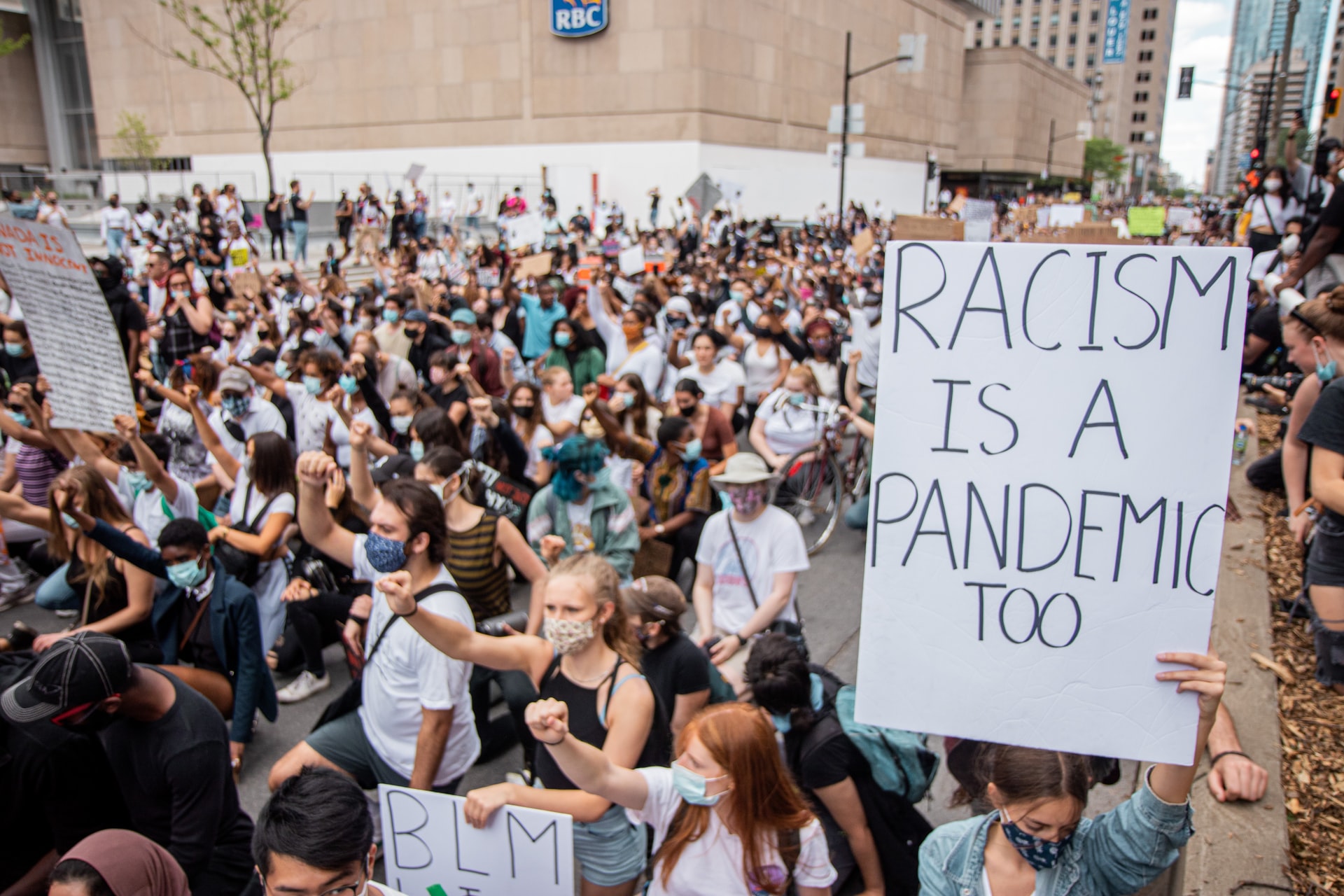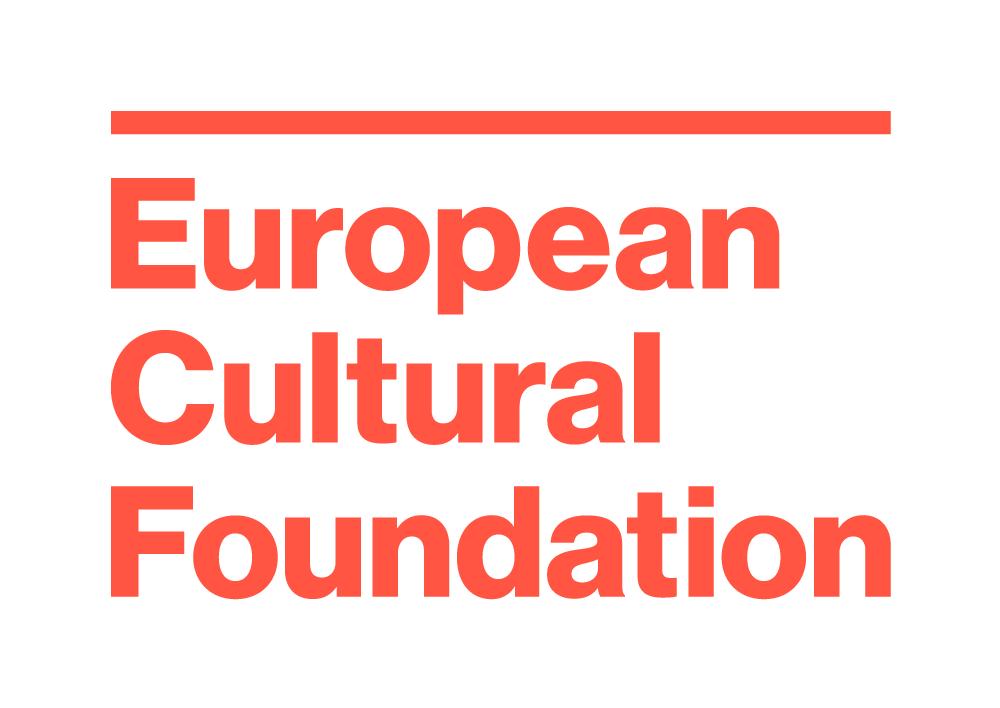The post-liberal condition
The perfect storm of viral politics and the challenge of Big Tech test the faith in the liberalism–fascism dichotomy. Fascism becomes endemic, playing on the premises of liberalism, pitting them against its democratic ideals.
In late February, when Putin’s war in Ukraine had just begun and the geopolitical outlook of the world seemed to be changing by the hour, I went back to an essay written by Sigmund Freud at the outbreak of the First World War. Thoughts for the Times on War and Death is divided in two parts. At the beginning of the global COVID pandemic, I had turned to the second part of the essay, ‘Our attitude towards death’, in an effort to come to terms with what death might mean for us today. Now, I was mostly interested in the first part, ‘The disappointments of war’.
I wanted an historical and experiential perspective on our situation. I wanted to know what it felt like for the founding figure of psychoanalysis to stand at the outbreak of total war and to see his conception of humanity shift and even falter. It was not my intention to draw a comparison, since I sympathize with Freud’s suggestion that ‘we are affected out of all proportion by the evils of these times and have no right to compare them with the evils of other times through which we have not lived’. But I hoped Freud would help me to read the times – our times – and to gauge the ramifications of current events for politics and for society.
Just like two years ago, he gave me no definite answers. Just like I got no answers about living through a pandemic from Ling Ma’s mesmerizing novel Severance (2018); none about new forms of power from Shoshana Zuboff’s The Age of Surveillance Capitalism (2019); none about living in what we used to call capitalism from McKenzie Wark’s Capital is Dead: Is this Something Worse? (2019); and none about climate activism and climate catastrophe in Kim Stanley Robinson’s The Ministry for the Future (2020). In fact, I have got no answers from any of the wonderful essays, theories and works of narrative fiction I have read in the past two years, as the weave of society was unwinding and the concerted response to an endemic virus was prompting institutional politics to complete its neoliberal course and set the parameters for a societal structure beyond capitalism as we know it.
But of course, the reason for reading is not simply to find answers. Engaging with narrative (non-)fiction always operates on multiple levels. There is escapism involved: as long as I read, I don’t have to write down my own thoughts and pin myself down on any one position. Perhaps this goes for our engagement with every written voice we encounter. There is also the production of knowledge: with every new paragraph there is the promise of a new perspective, a deeper understanding of things that matter to us, the possibility of a turnaround. And then there is the positionality of the reader: after every paragraph there is the opportunity to pause for a moment to position oneself vis-à-vis the narrative and the ideas that were taken in.
When escapism, knowledge production and positionality operate in unison, reading provides perspective. Escaping into Ling Ma’s alternative history, in which a fictional fungal infection has infected the majority of humankind and causes people to lapse into a catatonic state, I was able to take in the gravity of a global pandemic. Following the main character Candace Chen on her solitary strolls through downtown New York somehow gave depth to my own situation.
Zuboff empowered me to believe that theorizing new forms of power is difficult but necessary. McKenzie Wark’s speculative essay worked like a writ that challenged me to think through the present, and to take seriously the possibility that we may have moved beyond capitalism and into something worse. And virtually all of Kim Stanley Robinson’s work, not least his recent novel The Ministry for the Future (2020), induces insights on what it means to effectuate social change in the knowledge that right and wrong are as intertwined with one another as the possible and the impossible.
With Freud, I was struck by the heartfelt insecurity and genuine disappointment that he displays in the opening pages of his essay. There appears to be real doubt in his analysis of the situation. It is the kind of doubt and insecurity I could sympathize with. I have experienced the same sentiment, the same doubts and insecurities when faced with the cataclysm of political, social and ecological catastrophes of the past decade or so. ‘The individual who is not himself a combatant and therefore has not become a cog in the gigantic war machinery,’ writes Freud, ‘feels confused in his bearings and hampered in his activities’. Confusion, the impossibility of obtaining a true bearing, and the sensation of losing one’s political agency have once again become predominant.
Image by rawpixel.com
One thing we have learned from COVID, as much as from the circulation of (dis)information on social media and the relentless extraction of data, is that in one way or another we are all cogs caught up in the machinery of social, medial and viral life. This time around, however, the concerns are different. Where Freud could still consider himself a disinterested observer, this no longer seems an option in today’s geopolitics, viral politics and social media politics. We might carry within us the same confusion that Freud voiced at the beginning of the First World War, but we cannot deny our involuntary complicity. We feel caught in a multi-layered network that spins and turns in every direction. What irks us most is that we are the cogs that make it turn. We even wonder whether we are still subjects anymore.
In the networks of social media, we are extraction points for data and the potential hosts for carefully crafted disinformation with far-reaching political consequences. Although we fully realize how relentlessly this dual process of extraction and disinformation runs its course, we feel compelled to endlessly engage in forms of digital self-fashioning, creating personae that are inevitably at odds with who we feel we are and how we would like to engage and interact with others.
This is presented to us as an open-ended project, in the sense that part of us still lingers on the idea that the internet is full of social promise and political potentiality. Online impact and social recognition always appear to lurk just beyond the horizon. But deep down we know that under the current conditions of manufactured online discontent and data aggregation, the demand to engage in the digital public sphere only deepens the sentimental undercurrent of existential emptiness, steadily opening us up to the abreaction of resentment and seducing us into a fascist acting-out. The result is that we are not just Sad by Design, as Geert Lovink puts it, but also captured, colonized, enclosed, extracted, dispossessed and emptied out – socially, mentally and politically.
In the viral politics of the global pandemic, we have become the cogs that allow the disease to circulate through society. Unwillingly and often unwittingly, we carry the COVID virus and transmit it to people we have contact with. We don’t just make the machine work, we are the machine. And yet we seem to have no control over it. If there is one feeling today that seems to determine our situation, then it is this double bind: we feel both powerless and utterly responsible. As individuals, we feel devoid of any real political agency. But at the same time, COVID has brought home the awareness that every action we undertake, every little gesture we make, can have far-reaching consequences. It seems difficult to combine these two convictions successfully and yet that is what most of us are doing. It is a rare form of mental gymnastics, and it exhausts us to the core.
It is no different for social media. There too we feel both powerless and responsible. The title of Ling Ma’s Severance is fascinatingly ambiguous. Candace Chen works her way through a society that slowly succumbs to Shen Fever. Having no relatives in the United States, she stays in New York and carries out her job at a Bible publishing company. Taking place in an alternative version of 2011, in which Occupy Wall Street never takes place and employment conditions are further emaciated, the story is also about the rise of social media among. On her blog NY Ghost, Candace visualizes the collapse of society by photographing deserted streets and stores.
Later, when she has left New York and joined a group of survivors, led by a pugnacious midwestern called Bob, the group engages in long discussions on what the internet and Facebook has done with our social fabric. ‘Being online,’ Bob declares during one of their nightly campfire conversations, ‘is equivalent to living in the past.’ The word ‘severance’ itself is hardly mentioned, but all of Ma’s characters struggle with the feeling of being severed from their past.
Candace herself is struggling with her own severance from China, where she lived as a child until her parents migrated to the United States. Towards the end of the novel, as a group of survivors is slowly succumbing to Shen Fever, Candace hypothesizes that the infection might be triggered by nostalgia. As the story progresses, the other survivors anxiously seek refuge in their past. But finding herself pregnant, Candace’s life is extended into the future, enabling her to resist.
‘Severance’ is what happens during a global pandemic in a society that has already been broken up by the neoliberal state. Sequestered to our private spaces, cut off from the rich and complex communal textures that enable life-in-common, the task of social organization is now fully relayed to the neoliberal state. That very same neoliberal state created the juridical and political affordances for big tech companies to become a state-within-a-state, or more accurately a state-beneath-and-beyond-the-state that usurps our social life by way of so-called social media. We are at once severed from one another and smoothly worked into a colossal network of data extraction, viral politics and structural disinformation. Again, this double bind. The perfect storm of viral politics and digital social networks owned by multinational big tech has led to a transformation of both capitalism and society. Neoliberalism has run its course and fascism is back with a vengeance. And it thrives on nostalgia.
In The Age of Surveillance Capitalism (2019), Soshana Zuboff articulates a similar insight from a liberal democratic position. Social media networks represent a different mode of power at work in society. ‘Instrumentarian power,’ she writes, ‘aims to organize, herd, and tune society to achieve a similar social confluence, in which group pressure and computational certainty replace politics and democracy, extinguishing the felt reality and social function of an individualized existence.’
Reading these lines now, two years into the pandemic, it seems like Zuboff’s attempt to analyse the current conjuncture without falling into the false dichotomy between fascism and liberalism has met with a new challenge. Yes, a new kind of power is restructuring society. And yes, social confluence is part of the way big tech restructures social life, carefully guided by their desire for algorithmic extraction. But under the present conditions, it might be time to put liberal views on democracy and individualism to the test.
In our post-digital and viral present, I am not sure we can successfully grasp what is taking place by relying on the liberal notion of ‘man [sic] as a progressive being’, to quote John Stuart Mill’s classic definition of liberalism from On Liberty (1859). Instead, fascism may well be endemic to liberalism, playing on the premises of liberalism, playfully pitting them against its democratic ideals.
Aside from social confluence, social media networks, aided by a contentiously state-run viral politics, are incredibly adept in creating dissensus. In that context, the anxiety that society is ‘organized, herded and tuned’ by big media takes on a new meaning. It is opportunely appropriated by fascist movements around the globe, many of which ratchet up anxiety over the loss of individualized existence, only to merge it with an identitarian desire that is equally produced by social media – another paradox. It playfully appropriates the affordances of social media networks and weaponizes their potential for spreading disinformation to stir up discontent and a false sense of (racialized) individualism and the mirage of smooth (and equally racialized) communality. It is both fascinating and frightening to follow through the gordian knot that ties liberalism to fascism. I am not sure it is purely coincidental.
The liberal ideal of political individualism seems diametrically opposed to fascism’s racialized desire for communality, but the history of political liberalism suggests otherwise. Beneath and beyond the supposedly inalienable rights of the liberal individual, there has always been a struggle over who and what can claim the right to be accounted for as a political subject and be included into so-called civil society. Plants, insects, trees, animals, fungi, air, water, soil, and the vast majority of humankind were all pushed beyond the demarcation line of political subjectivity and reduced to raw material – dead matter up for grabs in the war against nature. This is the ecocolonial dark side of liberalism.
On an anecdotal level it is exemplified in the life and work of John Locke (1632–1704). Arguably one of the founding figures of political liberalism, in his Second Treatise on Government (1689), Locke voiced the official doctrine of liberalism, namely that slavery ‘is against the right of my freedom’. But he was also the secretary of the Lords Proprietors of Carolina and owned stock in slave trading companies. Slyly reasoning his way out of this seeming paradox, he argues in his Treatise that people who are enslaved are ‘captives taken in a just war’ and in a way already dead, having ‘forfeited their life’. They simply ‘cannot … be considered as any part of civil society’. Dead matter pushed beyond the demarcation lines of inalienable individual rights, in an eco-colonial war that goes beneath and beyond individual liberties.
Fascism has racialized this premise. With COVID becoming an endemic part of society, fascism has extended its fight into viral politics, rallying against vaccination and orchestrating the circulation of disinformation on personal and public health. But this playful (albeit lethal) fascism only became possible because the liberal state has carved out an exceptional space for big tech, allowing it to graft its way into everyday lives and restructuring the texture of social interaction. Under these conditions, our social epistemology changes. Truth is obsolete.
As a friend of mine, the French philosopher Frank Chouraqui, suggested in a recent conversation, it becomes a matter of ‘saturating the cognitive horizon’ of social media users with whatever (dis)information is opportune. And this is done in a playful matter, by focusing on user engagement to construct a world within the medium itself, rather than through factual or truthful references. In the process, individuals become data extraction points. At that point, liberal ideals are up for grabs, to be played with in favour of post-digital fascism.
Maybe this really is something new. Perhaps it is even something much worse, as Mckenzie Wark claims in her book Capital is Dead? Wark and Ma are in agreement on one thing at least: the real struggle is ‘to live in our own time’, as Wark puts it in the concluding chapter of her book. In that time – that is to say, in our time – there may be an instrumentarian power at work. But as oppressive as it is, it is also playful, using the affordances of social media to slowly push us beyond liberal capitalism and into something else.
What makes Freud’s essay on war and death worth reading is not just that he is open about his own doubts. It is that he is able to mobilize his doubts for the ‘destruction of an illusion’, as he puts it. Freud feels obliged to reconsider his understanding of individuals and society. The enlightenment assumption that human beings are noble and good no longer holds, he observes, and neither does the assumption that civilization is inherently progressive.
Where does that leave us? Are there any illusions to destruct? And what might it mean not just to accept doubt and insecurity as part of our situation right now, but to actually use it as a starting point for doing away with some misconceptions? Liberal political society was premised on the idea that nature is an other; an outside that, precisely because it falls out of civilization, cannot be bequeathed with any rights. Along those lines nature was conceptualized as an externality from which an endless supply of raw material could be subtracted. With climate catastrophe in full swing and COVID becoming endemic, nothing appears to be less true.

Photo by Ying Ge on Unsplash
Beneath and beyond the operative fiction of the liberal subject, many other things manifest themselves as political agents: viruses, insects, waterways, minerals, molecules. One of the biggest illusions destructed by COVID and the global pandemic is the idea that society is disconnected from the ecosystem in which is its nested. We need a different way of living together, in which non-human agents take part in society, as the political agents they already are.
That will require us to reconceptualize political agency in a way that interrelate issues of climate disruption, viral politics, and instrumentarian power; and to always be on the lookout for the unexpected tipping points were the liberal paradigm and its fascist double can be curbed.
What such a reconceptualization might look like is explored in Kim Stanley Robinson’s The Ministry for the Future. A composite of fictional policy papers, alternative histories, sci-fi green tech, short essays and stories about climate destruction and the destructive impact of multinational technology and energy companies, the novel focuses primarily on the professional life of Mary Murphy, a former foreign minister of Ireland who takes up the position as head of the Ministry for the Future, a supra-national organization based in Zürich that has been tasked to coordinate international efforts on mitigating climate catastrophe and climate adaptation.
As one of their central efforts, the ministry sets up a cryptocurrency, the carbon coin. In another effort, the organization develops an alternative to the existing private social media platforms. Their new system, initiated by the Ministry for the Future, is called YourLock. It guarantees full data integrity while also serving as a platform for financial transactions, integrated with the carbon coin cryptocurrency. In reality it would take a miracle for the platform and the cryptocurrency to take off, but this is fiction and the fact that it works in The Ministry for the Future is no grounds for criticizing the novel. On the contrary, it should be cause to consider carefully why it works. For the carbon coin to hit it off, Mary Murphy needs the help of the Chinese central bank, which she receives thanks to geopolitical opportunities. For YourLock to succeed, the ministry appears to be lucky: after the main private social media are down for a couple of days, users start migrating to YourLock, also because of the convenience of the fact that the platforms allows you to do financial transactions.
But is it luck? To grasp the political relevance of The Ministry for the Future, it is crucial to pay attention to that which is not being narrated, but only hinted at. Alongside the politics of Mary Murphy, there is an increase in climate activism that borders on terrorism, mostly by a group called Sons of Kali. Time and again, the narrative suggests that the group may be in close contact with Mary’s second in command, Badim.
At a certain point, Mary suggests that the ministry needs a black wing for covert operations. Nothing seems to come of it, but from that moment on the terrorist insurgencies increase. They include hacking and taking down private social media platforms at crucial moments. Interconnecting civilian politics, financial opportunism, shifts in geopolitics and, most likely, black ops. Sure enough, Murphy and her team book some critical successes. The outcome is that ‘users may be turning into a new kind of citizen of the world. Gaia citizenship, or what have you. Earth citizen, common member, world citizen. One Planet. Mother Earth.’
The point The Ministry for the Future tries to make is not that we need to think everything through when searching for a different form of political citizenship or agency. Instead, starting from the complexity of our situation, it seems crucial to playfully interconnect the issues that we are facing: the impact of social media platforms on our social texture, geopolitical shifts, climate disruption and viral politics. We need a way out of this, without acting out and succumbing to fascism. This much is clear.
Published 27 May 2022
Original in English
First published by Eurozine
© Bram Ieven / Eurozine
PDF/PRINTIn collaboration with
In focal points
Newsletter
Subscribe to know what’s worth thinking about.
Related Articles

The technological link between the rifle and the film camera, the medial links between the Gulf War and Star Wars, the colonial history of bombs – piecing together historical and contemporary fragments reveals an image of Kurdistan as a testing ground for military technology unleashed without responsibility for its consequences.

While China moves into its fifth decade of extracting rare earths and raw materials, Europe remains stuck between nationalistic industry priorities and democratic principles.






